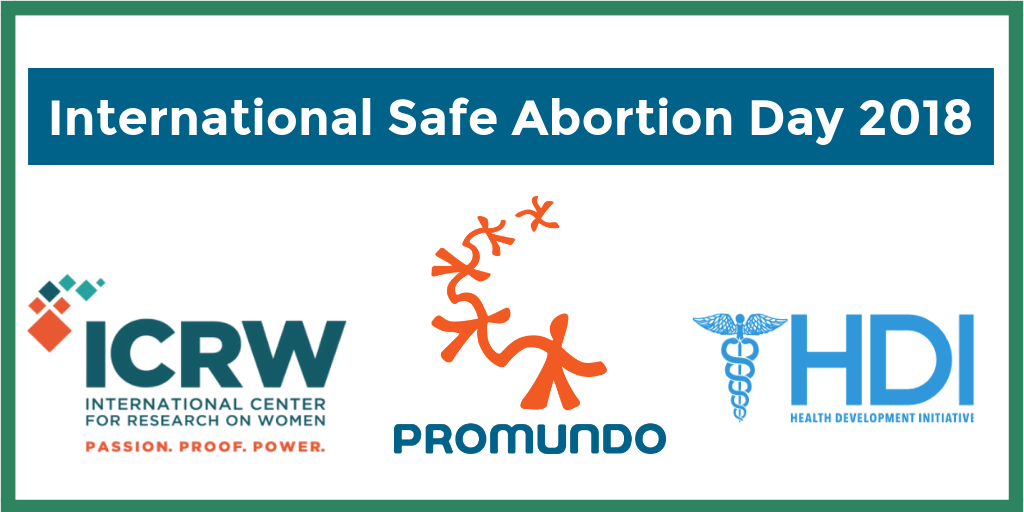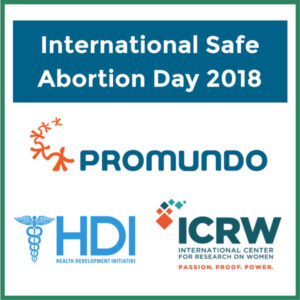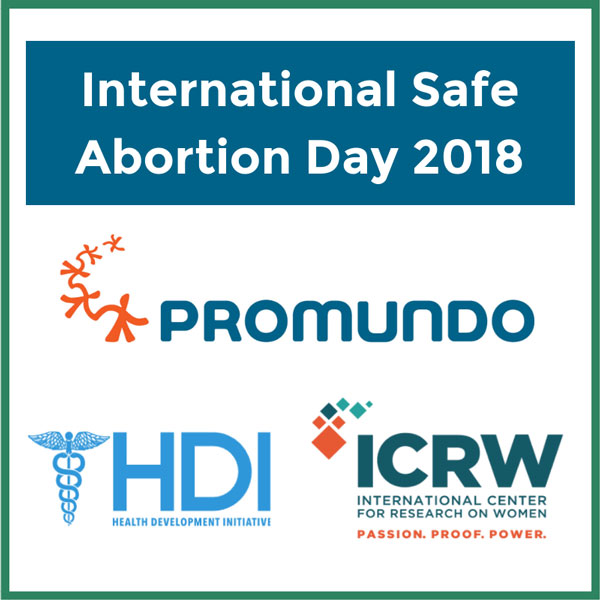
By Kate Doyle, Senior Program Officer, Equimundo and Jane Kato-Wallace, Director of Programs, Equimundo
We at Equimundo believe that abortion is a human right and agree with the organizers of International Safe Abortion Day, that, “safe and accessible abortion is a social good that is inextricable from broader issues of social equality and justice.” As noted in the recent Guttmacher-Lancet Commission report, safe abortion is a key pillar of a comprehensive sexual and reproductive health and rights platform. This includes women’s right to choose if and how a male partner is included in their sexual and reproductive health decisions and services.
New studies we’ve conducted with partners in India and Rwanda show the various ways that men are engaged in promoting women’s abortion rights, including as partners supporting premarital abortion decision-making and as activists working to advance policy changes to make abortion safe, legal and accessible. We find that:
Men often leverage their social privilege to support their partner in premarital abortion-seeking.
In India, together with International Center for Research on Women (ICRW)-Asia, we found that men whose partners sought a premarital abortion often acted as “an all-in-one service provider,” particularly in cases of women from lower income groups. These men – acting from a position of societal privilege that affords them greater mobility and autonomy – sought information about pregnancy kits, abortion pills, clinics, purchased medication, spoke to doctors, accompanied their partners to the clinics and paid for abortion services. Such support was often offered as a result of the societal pressure men faced to be a protector, along with their concern for their partners’ well-being. At the same time, men also reported feeling guilt, shame, and fear for having put their partner in this situation. In the words of a male respondent, “We both felt a sense of shame after the episode. We felt that we had committed some wrong.” This study finds that, among other things, the discourse in India that paints unmarried men as oversexed, exploitative and irresponsible needs to be further examined and broadened.
Personal experiences often motivate men to engage as activists, but more is needed to dismantle inequitable gender norms to increase women’s agency to advocate for their own reproductive rights.
In Rwanda, together with Amy Shipow and Natacha Mugeni from Health Development Initiative Rwanda, in a study focusing on male activists advocating for safe abortion, we found that self-identified male advocates were commonly motivated by witnessing the consequences women experienced who were forced to carry unplanned and unwanted pregnancies, particularly as a result of rape. We also found that traditional gender norms which discourage women from speaking up or discussing issues of sexuality often hindered female activists from playing a visible role in abortion rights advocacy, while the reverse was true for men. The research suggests that while men can and should continue to play a critical role in advancing abortion rights, we need to dismantle inequitable gender norms so that more women who want to can advocate for access to safe and legal abortion. The findings show that while women support men in advocating for safe, legal abortions, both male and female advocates acknowledge the collective power and potential that joint advocacy strategies could yield.
In sum, this research highlights the double-edged sword of many men’s positive participation in women’s access to safe abortion care. On the one hand, many men were supportive, but it was their greater privilege and freedom of movement or speech relative to women (depending on the context) that allowed them to provide this support. We believe men can and must play an important role in affirming women’s access to safe abortion care. And they must be allies in securing full and equal rights for women.

